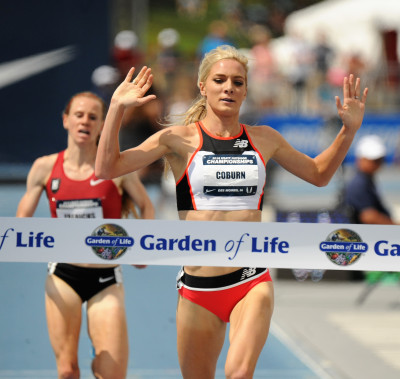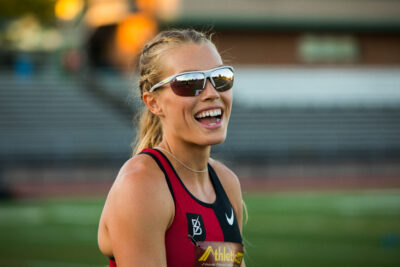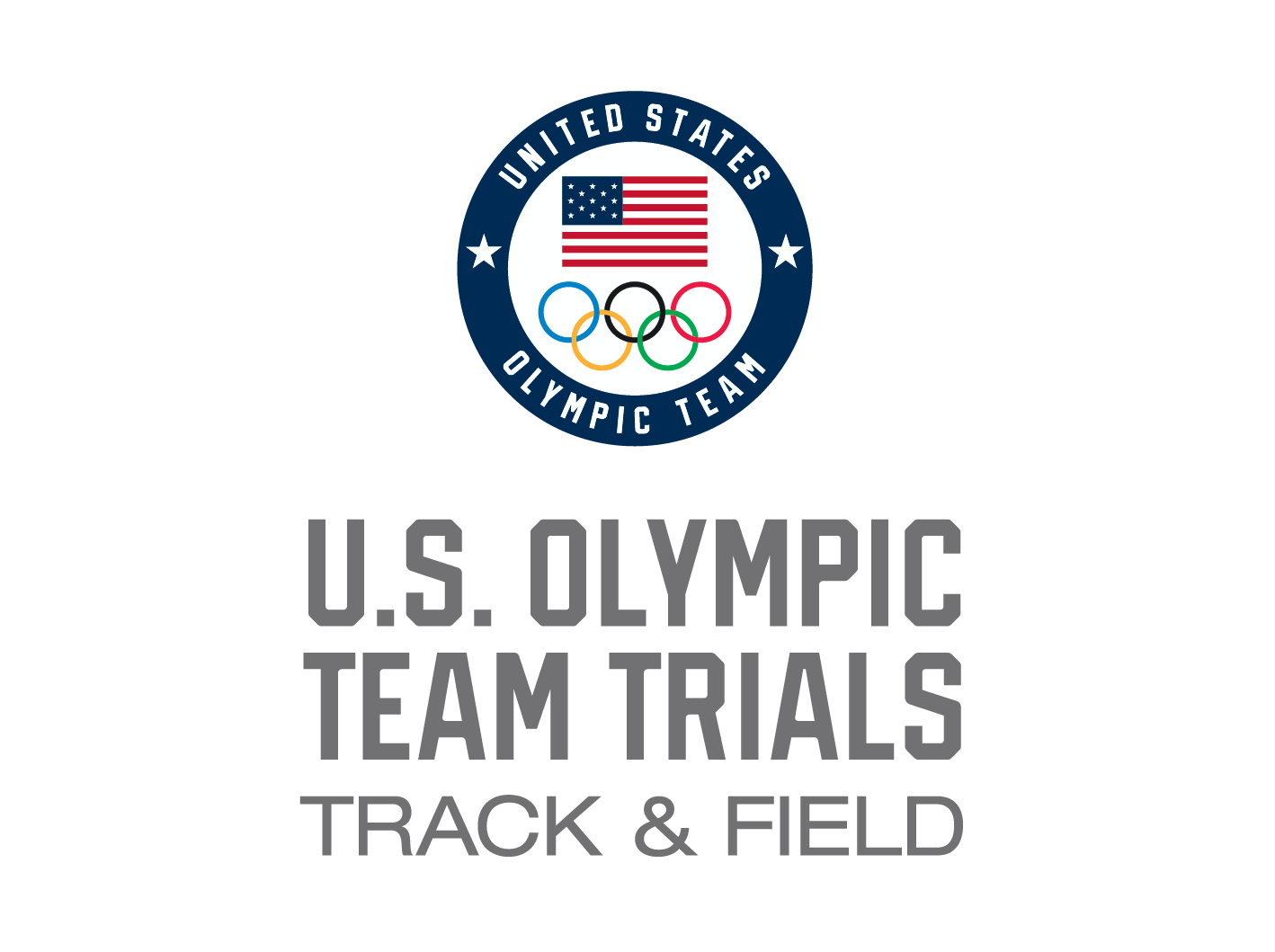2020 Olympic Trials W3000SC Preview: Another Year of Coburn-Frerichs-Quigley?
By Jonathan Gault
June 17, 2021
In 2016, 2017, and 2019 — the last three years the US picked a team for a global championship — the finish of the women’s steeplechase at USAs has been the same: Emma Coburn, Courtney Frerichs, Colleen Quigley, in that order. They are the three fastest Americans in the history of the event, and all three are in their distance-running prime (Frerichs and Quigley are 28, Coburn is 30). Given the gap between the top three and the next-best athlete in the event, if all women are in top form, this could well be the most boring event of the entire Olympic Trials.
But the Olympic Trials have a propensity for drama, and there are serious questions to be asked about Quigley, who left longtime coach Jerry Schumacher earlier this year and has not raced a steeple in almost two years. If she is not up to her usual standard, the battle for the third spot on Team USA will be fierce. Let’s get to it.
Before you read the preview, make sure you enter our prediction contest. At least get your picks for the events that start on day 1 by 7 pm ET on Friday. LRC $200,021 LRC Running Warehouse Trials Prediction Contest is Here!
Schedule/entries * TV/streaming information * LRC Trials coverage hub
Dates: 1st Round: Sunday 6:35 p.m. Pacific
Final: Thursday: 8:47 pm Pacific
Notable entrants *Full entries
Athletes with 9:30.00 Olympic standard in bold
| Name | Affiliation | SB | Note |
| Emma Coburn | New Balance | 9:08.22 | Three-time World and Olympic medallist is your favorite |
| Courtney Frerichs | Nike/Bowerman TC | 9:21.13 | American record holder |
| Valerie Constien | Tracksmith | 9:25.53 | Former CU Buff has lowered PR from 9:44 to 9:25 this year |
| Mel Lawrence | Oiselle | 9:27.34 | 3rd at ’18 USAs |
| Leah Falland | On Athletics Club | 9:28.72 |
Former NCAA steeple and mile champ is on comeback trail. Ran 9:18.85 in ’16 and was in contention to make team until final lap
|
| Marisa Howard | Idaho Afoot | 9:29.65 | Former NCAA runner-up in steeple |
| Courtney Wayment | BYU | 9:31.37 | 4th at NCAAs |
| Mahala Norris | Air Force | 9:31.79 | NCAA champ |
| Katie Rainsberger | Washington | 9:32.12 | NCAA 3rd placer. Mom won Boston Marathon |
| Alex Wilson | Tracksmith | 9:32.69 | Coming off big 4:07 1500m pb in Portland |
| Grayson Murphy | Saucony | 9:33.79 | ’19 World Mountain Running champ has PR’d in both steeples in ’21 |
| Summer Allen | Weber State | 9:37.48 | 8th NCAAs |
| Gabrielle Jennings | Furman | 9:38.24 | 7th NCAAs |
| Sara Vaughn | &Mother | 9:38.52 | 35-year-old made 1500 team in ’17 |
| Krissy Gear | Arkansas | 9:38.62 | Ran 1500 at NCAAs (5th) but was SEC champ in steeple |
| Allie Ostrander | Brooks Beasts | 9:38.72 |
Made Worlds in ’19. Just announced she is getting treatment for eating disorder
|
| Katy Kunc | Tracksmith | 9:39.52 | 14th at USAs in ’19 |
| Colleen Quigley | Lululemon | NM |
9:10 PR makes her #3 in US ever but switched sponsors and only 1 race in 2021 (8:40 3k in February)
|
There are really two questions to be asked about this race.
1) Who wins: Emma Coburn or Courtney Frerichs?
2) Who gets third: Colleen Quigley or someone else?
 Coburn 1st, Frerichs 2nd. We’ve seen this before. (Phil Bond photo)
Coburn 1st, Frerichs 2nd. We’ve seen this before. (Phil Bond photo)
Let’s tackle them in order. Everything points to another Coburn victory. Coburn, 2017 world champion and 2019 silver medallist, won her first US title as a 20-year-old in 2011, and has been the unquestioned American #1 in the steeple ever since, only failing to win USAs in 2013, when she was injured and did not compete. Lifetime, she is 14-1 against Frerichs, though her one loss came in the race in which Frerichs set the American record of 9:00.85 in 2018. Frerichs, the 2017 Worlds silver medallist, has finished as runner-up in the last four US steeple finals, and has gradually closed the gap on Coburn, from 3.44 seconds in 2016 to 1.95 in 2017 to .99 in 2018 to .98 in 2019.
Both women are outstanding steeplechasers, the two best athletes the US has ever produced in the event. But Coburn is better, and more consistent. On May 15, Coburn ran 4:04 in the 1500 at the Track Meet — three seconds faster than Frerichs has ever run in that event. And in her lone steeple of the year, in Doha on May 28, she ran 9:08, the 14th time in her career she has run 9:10 or faster (Frerichs has done it four times). Coburn also opened her season with a 9:08 in 2018 and 2019 and went on to win USAs both years.
Frerichs has not displayed (publicly) quite the same fitness so far in 2021. She has two wins from two steeple races, running times of 9:27 and 9:21 — over 20 seconds slower than her 9:00 pb. But Frerichs said after the latter race that she was not concerned about her time — her aim was to practice closing hard over the final kilometer to simulate the Trials. And she did that, separating from the field with three laps to go and running unchallenged from then on.
That’s worth noting. Because while 9:21 in a Trials dry run is an unimpressive time for Frerichs, it’s still four seconds faster than the fastest non-Coburn/Frerichs time this year by an American (9:25 by Val Constien, from the same race). She’s still a cut above everyone else in this field, save for Coburn, and she had an impressive 2020, with pbs at 1500 (4:07) and 5k (14:50). But she has shown nothing yet in 2021 to suggest this will be the year she unseats Coburn, so Coburn is my pick FTW.
On to question 2! At her best, there is little doubt Colleen Quigley would easily make this team. She’s made the last four US teams and has run 9:10 (#3 in US history, 8 seconds ahead of #4 in this field, Leah Falland). But there is significant question about whether Quigley will be anything close to her best.
For starters, she left the Bowerman Track Club, her home for the past five years, in February for more money and more freedom, and is back working with Josh Seitz, who coached her to the NCAA title and her first Worlds team in 2015. How’s that working out for her? Well, we don’t really know. She’s raced precisely once this year, and while it went very well — she ran 8:40 and beat former teammates Karissa Schweizer and Elise Cranny — it was all the way back on February 6 when she had just come off an altitude stint with the BTC. Since then, she has been dealing with plantar fasciitis — a recurring theme in her career.
 Quigley left BTC in February but has barely raced since (Photo by Talbot Cox)
Quigley left BTC in February but has barely raced since (Photo by Talbot Cox)
Quigley is very injury-prone. She battled through plantar fasciitis and a hamstring injury in 2015, dealt with a variety of injuries that limited her to just one race before the Trials in 2016, missed USAs in 2018 due to a stress reaction, and missed Worlds in 2019 due to a hip injury. The common thread through all of that: Quigley still made every US team in that span.
This is a woman who knows how to prepare for a championships while cross-training. It’s anyone’s guess as to how much running and how much cross-training Quigley is doing right now. The fact that she hasn’t raced any steeple since 2019 is concerning, but if she makes it to the start line in Eugene, you have to like her chances to make the team.
Or maybe you don’t. In which case, there are four other Americans with the Olympic standard: Val Constien, Leah Falland, Mel Lawrence, and Marisa Howard (no one is currently in position to qualify via World Ranking). The fastest in 2021 is Constien, who is also in the hottest form. A 25-year-old Colorado alum, she was 5th and 6th at NCAAs in ’18 and ’19 but has never run a US champs. Still training under Heather Burroughs and Mark Wetmore, she has PR’d in three straight races, going from 9:44 to 9:25, and if she can keep that PR streak going in Eugene, she’ll be in the mix.
Falland (nee O’Connor) has the fastest pb outside of the Big 3 — 9:18.85 — and #5 in US history. She ran that in 2016, but from 2017-20 never ran faster than 9:32. But she has been rejuvenated since moving to Boulder to join fellow Michigan native Dathan Ritzenhein‘s On Athletics Club, and on May 9 at Mt. SAC finally broke 9:30 again, running 9:28 for second behind Frerichs. Crucially, she also beat Howard, Constien, and Lawrence in that race, the latter two convincingly.
“Solid” is the best word to describe the 31-year-old Lawrence, who has finished 8th, 5th, 3rd, and 6th in the last four US championships. The question is whether she can raise her game to finally make a team. Her 9:27 pb in her most recent race is a good sign. Howard is in a similar position: she was 5th at the last US champs and ran her 9:29 pb earlier this year at Mt. SAC.
I should also mention Allie Ostrander, who made the team in 2019 when the US was allowed four entries at Worlds. She will run the Trials, but she does not have the standard and has been open about undergoing treatment recently for an eating disorder. She is not expected to factor here.
A fun potential storyline is the rise of 4-foot-11 Mahala Norris of Air Force, who ran the first steeple of her life on April 30 and surprisingly won the NCAA title in dramatic fashion. PRing to hit the 9:30 Olympic standard is doable (Norris ran 9:31 at NCAAs). Beating the pros to finish in the top three will be a challenge — though it’s worth noting that since the women’s steeple was added to the Olympics in 2008, a collegian has made the US team all three times. And Norris has an amazing close.
On paper, heading into NCAAs, I thought BYU’s Courtney Wayment (NCAA 3k/DMR champ, 9:31 pb) had a great shot, though she finished a somewhat disappointing 4th at NCAAs. Is her form declining or did she just have an off day?
JG prediction: 1) Coburn 2) Frerichs 3) Quigley
This has been the easiest event to predict at USAs over the last few years, so I’m going to follow history and pick the usual order. I don’t see any way Coburn and Frerichs don’t make the team. I believe in Quigley, and if there’s a changeup here, I think it’s more likely she beats Frerichs than misses the team entirely. If it turns out Quigley is hurt and can’t run, I’ll take Falland for the third spot.
Rojo’s take: Wow. I’m stunned that Jonathan thinks it’s more likely that Quigley beats Frerichs than misses the team. Yes, their head-to-head matchup record is close as Frerichs leads 7-6, but Frerichs has won the last 3 steeples they’ve raced including a 4 seconds win at USAs in 2019. And I’ll admit that Quigley is SUPER tough and is very experienced at cross training but before I read that I was thinking there is next to zero reason to expect her to beat Frerichs in her first race in months.
Does he know something I don’t know?
Of course, the other runners do have a massive gap to make up. In 2019, while Quigley was 4 seconds back of Frerichs, Quigley was still more than 7 seconds up on Ostrander 4th and more than 20 seconds up on Howard in 5th. And Jonathan’s faith in Quigley has made me scour her Instagram where I do see a lot of photos of her running and smiling. I still think the odds of her missing the team are less than her beating Frerichs.
Talk about the women’s steeplechase on our world famous fan forum / messageboard.



